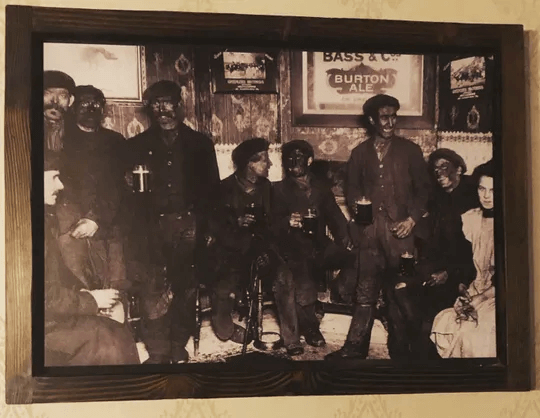This is a rare and excellent guest post by commenter and very occasional guest blogger JRM. For best results, follow all the links. — Patterico
[Guest post by JRM]
OK, so let’s talk about the St. Louis shooting of the cop by the other cop. I’d like to thank the host for a shot at a guest post. (tl;dr version: Yes, it should be murder.)
Part One: The Facts. The allegations are: Officer Hendren and Partner are on duty. They go to visit Officer Alix who is off-duty. Alix is the only female officer, and they visit at Hendren’s house. As you do, they begin playing with handguns. Hendren clears a revolver – not a duty weapon – and puts one bullet in the chamber and begins screwing around, spinning the cylinder. Partner wanders away. Supposedly, Hendren aimed the weapon away from Alix when he fired, and then Alix took it and pointed it at his head and dry-fired, and then Hendren took it back and shot her in the chest and then she died.
Now, our source for this account appears to be Hendren. Partner is out of the room (he says) when the shooting occurs. Alix is dead. This leaves one person telling the tale. The unpleasant and cynical among you may think claiming Russian roulette where you shoot the other person at your house while you’re on duty and she’s not is maybe not true. And let me get this out of the way: We don’t have reliable facts on this generally because the law enforcement earlier response to this contradicts the current narrative. But for this analysis, I’m accepting these facts as true.
Part Two: Russian Roulette, Polish Roulette, and Just Shoot Them.
These cases come in four basic scenarios:
1. Regular Russian roulette: One bullet in the chamber, we all take turns (usually while hammered) pulling the trigger until someone dies. The seminal case on this, Commonwealth v. Atencio, comes from Massachussetts in 1964 where the survivors were successfully prosecuted for involuntary manslaughter, but different states have different rules. This is a thorny issue that merits another 600 words, which you’ve built up sufficient karma to avoid.
2. The after-party: Someone ends up killing themselves accidentally after everyone else has finished the game and no one’s dead yet. This is generally not a criminal homicide.
3. This thing, where the gun is pointed at the other person, called “Polish roulette,” in one case. I can find no case where a murder conviction has been overturned for this conduct anywhere in the United States. I am not saying they don’t exist, but that’s the way to bet. Here’s a case where the guy has two bullets in the chamber, fires once to his head (click) asks his friend if she’s OK with him firing it at her, and she says “yes.” Then she’s dead. He appealed on the ground of, “Hey, this is involuntary manslaughter because I’m super-wasted and she consented.” No. No, it isn’t.
4. “Russian roulette,” in name only. Somebody may have different goals and be playing by different rules. In one case, a guy claimed it was Russian roulette but then clarified that he put the gun at the back of the other guy’s head and said, “Surprise, motherfucker,” before pulling the trigger. The victim was more dead than surprised.
Part Three: The Law, almost everywhere in the United States: Let’s take a step back and figure out what crime is committed when we’re having our fun game of Russian roulette. For this, in most jurisdictions, we need to discuss malice.
Suppose Patterico says, “That JRM has been dissing Ted Cruz for a long time. I would like him dead; in order to make him dead, I will stab him a lot of times,” and then stabs me a lot of times. That’s express malice. That’s murder.
Suppose Carl Llama stabs a guy in the chest 37 times. The defense: “I did not know stabbing people in the chest all those times could kill him” — if true — negates malice in California and lots and lots of other states and it’s an involuntary manslaughter. But just not caring is not enough; we think Carl is lying about this. It’s not a felony murder because of something called the “merger doctrine,” which makes assaultive felonies that constitute the killing ineligible for felony murder.
So we end up with implied malice or depraved heart murders on all kinds of facts – go on a weeklong meth bender and leave your baby to die, and you’re a murderer. Drive 110 miles an hour super-stoned? Murder for you. You did something very dangerous knowing it was dangerous. Like, say, firing a gun with at least one bullet in it at a person.
The Model Penal Code and lots of states have ruled either explicitly or implicitly that Russian roulette is one of those things that shows implied malice or depraved heart murder.
But this, my friends, is just a detour in this specific case. Because we’re in Missouri.
Part Four: The Law in Missouri – like Texas before it – is different. A 1986 change in the law removed first degree felony murder for enumerated felonies, and made all felonies eligible for second degree murder. The Missouri courts were initially taking the Beavis approach to legislative intent — “Words suck” — until eventually coming around to the Butthead approach — “Words mean stuff” — and abolished the merger doctrine.
The relevant statutes are Missouri’s second degree murder statute – Missouri Revised Statute (MRS) 565.021 which says a person commits murder if they “commit or attempt to commit any felony, and, in the perpetration or the attempted perpetration of such felony or in the flight from the perpetration or attempted perpetration of such felony, another person is killed[…]”
Do we have a felony here? How about second degree assault, which is MRS 565.052(4) – Recklessly causes physical injury to another person by means of discharge of a firearm? That happened.
Now, ideally, we’d have a series of cases which explain that the merger doctrine has been abolished specifically as to second degree assault… oh, right, in 2016 State v. Tuttle approved of an instruction that made the felony of stabbing sufficient for felony murder and said the merger doctrine was dead in Missouri. That’s a Southern District case; the Western District has similarly ruled, and the Eastern District (where St. Louis is) has a case where the court rules that it doesn’t have to decide, but that current Missouri jurisprudence was that the merger doctrine was, like many a Russian roulette player, stone cold dead.
Which means in Missouri, this is a felony murder.
Part Five: Sympathy for a Cop-killer. (But not from me.)
Hendren has now been charged with involuntary manslaughter, and the DA”s statement is striking. I am not making this up: “Today, as much as it saddens my staff and me to file these charges, Katlyn [Alix] and her family deserve accountability and justice.”
Let’s take a look at prosecutor’s statements when people point guns at cops and shoot them to death. Generally, they lack the tone of, “I am very sad to charge poor Mr. Copkiller with a very bad charge, but I guess we need to do this, not because murdering police is super-terrible but the family has hurt feelings, so we just have to no matter how much catching and prosecuting cop-killers makes us cry.”
This appears to be murder under Missouri law, under every other state’s law, under basic systems of fairness, under everything. I’d understand a non-murder resolution, but murder’s not an overcharge here. It’s not remotely a reach – it’s the clear crime when one takes a partly loaded firearm, aims it at someone’s chest, and fires. Officer Alix paid with her life; Officer – I assume soon-to-be Mr. – Hendren ought to pay with more than an involuntary manslaughter.
This charging and this explanation are not respectful to the good cops out there. It’s not respectful to the rule of law. It’s not respectful to the citizens of St. Louis. This is not some second-guessing of a snap judgment, this is a straight-up unjustified, predictable killing. This is a bad business, and it sure as hell looks like murder to me.
Part Six: The Caveats.
I might be wrong on the facts. I might have misinterpreted Missouri law. I might not know very important things that alter the equities of the situation.
I’ve included funny links and humor in this post. I always give a little blurb early in my oral law-of-homicide presentations – I’m educating with humor, but actual murders are awful. Occasionally a murder victim’s family member attends one of these; they are always very nice and understanding. To be clear: Officer Alix deserved better. If the factual account is accurate, this looks like murder, and I believe based on my incomplete information that it ought to have been charged.
That’s just my opinion. I could be wrong.
(If you think I speak for my employer, I weep for you.)
[Cross-posted at The Jury Talks Back.]
— JRM





